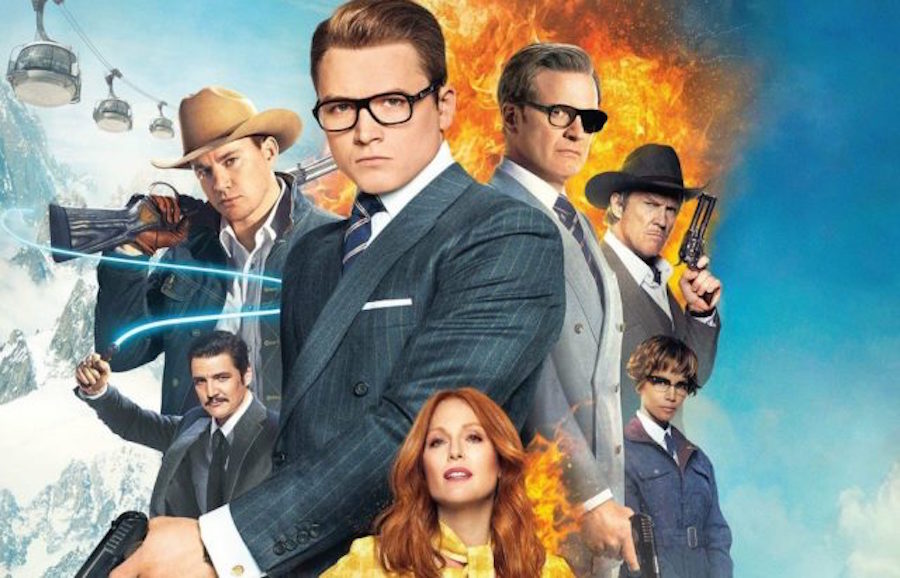
‘Kingsman: The Golden Circle‘ is an interesting film. Not only is it Director Matthew Vaughn‘s first sequel to his own work, but it is also perhaps the least Vaughn-esque of his entire filmography, structurally speaking. If you look back on Vaughn’s movies, you’ll notice a structural through line that connects all of Vaughn’s and co-screenwriter/frequent collaborator Jane Goldman‘s scripts. “Stardust“, “Kick-Ass“, “X-Men: First Class“, and “Kingsman: The Secret Service” all share what is essentially a very refined version of The Monomyth, a.k.a. “The Hero’s Journey” told through Vaughn’s dynamic filmmaking style. If you hold films of his like “Kick-Ass” and “The Secret Service” next to each other, you begin to notice that Vaughn has essentially made the same film for the last few years, although each individual entry becomes augmented through the genre in which each story is being told. “Kingsman: The Golden Circle” is the first of his films to deviate from this structure, and it is possibly the weakest of his filmography to date because of this. It’s not that “The Golden Circle” is a bad movie — in fact it does many things right for a sequel — it’s just that the film is essentially the type of spy movie that “The Secret Service” was ultimately satirizing. The film pretty much amplifies all of the elements from the original in a much more extreme way, and for the most part this is a detriment to “Kingsman: The Golden Circle“.

These tonal problems don’t end here however, as the franchise’s main conceit of being both a satire and homage to the spy movie genre unexpectedly shifts in the second act with the introduction of the Statesman, Kingsman’s American counterpart. While I understand that the idea was to portray the statesman using pretty much every american stereotype known to man, I don’t think that this is done in a particularly fun or interesting way in the film. To be quite honest, I probably wouldn’t have had such a problem with the idea of the Statesman if they had been portrayed more earnestly than they are in the film. With the exception of Pedro Pascal‘s Whiskey–who is really the only interesting new character of the bunch–the rest of the Statesman agents are either not given enough screen time to really effect the plot, or be memorable in any meaningful way. Look, I get it, the Statesman are intended to be the exact opposite of what the Kingsmen represent–Americanism. The problem is that it’s handled in a poor and sloppy way, much like many of the aforementioned elements of the film. Even the names of the Statesman agents themselves are flat and generalized (Whiskey, Tequila, and Champagne), when compared to the codenames of their counterparts (Galahad, Lancelot, Merlin). While this may seem by some to be looking too closely into things, it’s things like this that ultimately speak to the larger problems of “Kingsman: The Golden Circle” in many respects.

To echo my sentiment earlier, the film actually isn’t horrible and there’s a ton to like about it. But the overall problem remains the same: it’s overshadowed by it’s predecessor. This is something that–at least for me–was impossible to escape when watching “Kingsman: The Golden Circle”, even though at times it’s clear that the filmmakers are trying to do something different. That something different in the movie just happens to be mostly bloated, non-senseal and sometimes farfetched plot that only goes to discredit the work done in the first. In comparison to the original however, the cracks begin to show themselves within the first half of the sequel and begin to quickly deteriorate into a hollow shell of its former self. It’s interesting, because if “Kingsman: The Golden Circle” had been the first entry in the series and “The Secret Service” never existed, I probably would have enjoyed it much more than I did.
The post ‘Kingsman: The Golden Circle’ Review appeared first on Age of The Nerd.
